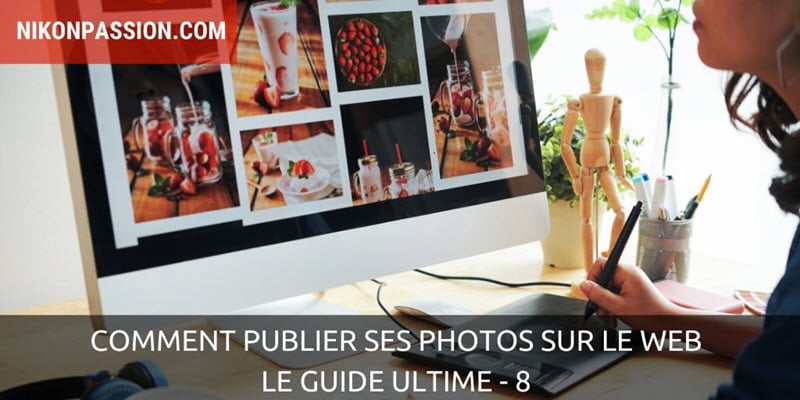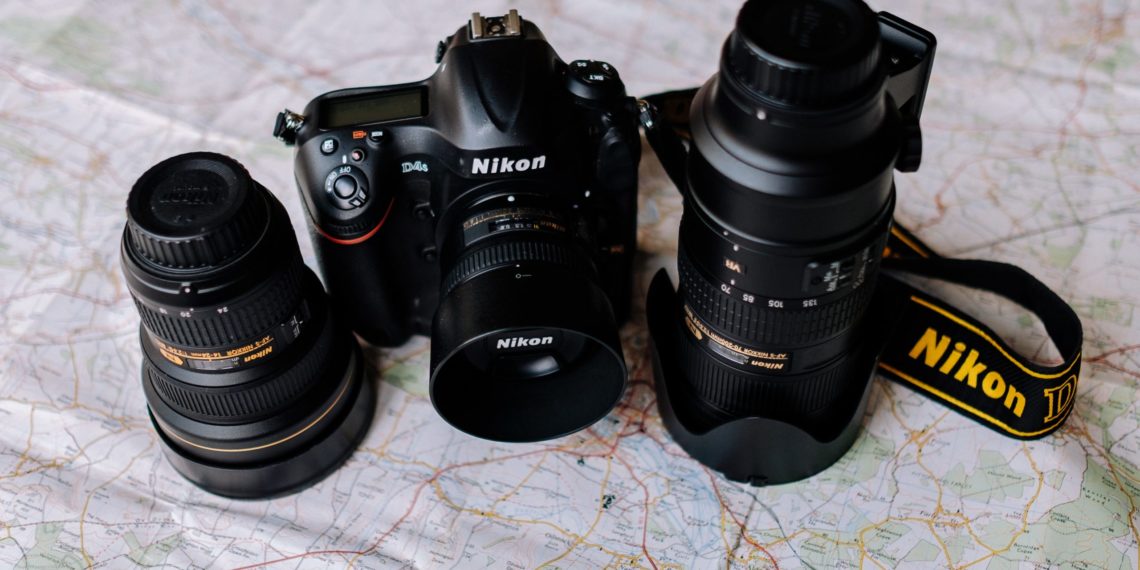You publish your photos on the web but you’re always afraid of getting them hacked. Although it is a risk you have to accept, there are a few simple techniques to ensure the protection of your photos. This is the subject of this last article in the dossier on web publishing (see the first article).

The protection of photos on the web, problematic
To publish a photo on the web is to expose it to the public. That’s your goal:
- be visible,
- to make yourself known,
- to win more ratings,
- receive requests for shots,
- generate revenue for some.
But there’s some flaws. Many robots explore the web (Google for example) and index your photos. Some not very delicate people will download them, to use them without asking your agreement.
If you have a problem with this, there is only one rule that applies:
“If you don’t want your photos circulated without your consent, don’t publish anything on the web. »
Your photos are uploaded for non-commercial purposes.
They may be published by another person without any intention to harm or commercial purpose. Some people believe that everything online can be used freely. This is not true.
To avoid this, publish your photos under a Creative Commons license if you agree to let them be used, the license guarantees that your copyright will be respected. By giving the rules of the game in this way, others are informed and can respect them. You can react in the opposite case.
Otherwise publish your photos under a commercial license with the mention “all rights reserved”. In this case, you will have to ask for your agreement.
Your photos are uploaded for commercial purposes.
Whoever’s doing this is disenfranchising you. It’s not just a question of money, the value of a photo is worthless these days. But not mentioning the author is illegal.
To avoid this, set up an alert service (Google Alert for example) allowing you to identify who has used one of your photos (the alert can be about your name to be added to each photo).
Every time one of your photos is seen somewhere, you are alerted. It is then up to you to enforce your copyright.
I have done this several times, I contact the interested parties by requesting the withdrawal or by sending an invoice. The problem is solved quickly.
The photo’s out of context
Uploaded from the web, out of context, your photo can be used to convey a message that is not yours. Taking an image out of context and reinterpreting it is easy. Anyone can do it.
It is not a question of money, again, but a question of positioning. Imagine that your photo serves a cause that is not yours, you wouldn’t appreciate it and it can harm you.
Always caption your photos with context:
- place and date
- background description
You can even add that the photo describes a particular situation, that it cannot be taken out of this context. This will be “your proof” in case of non-contextual reuse.
A little-known technical aspect
To display a photo on the web, you must upload it to a server. One of a sharing site, out of your control, or yours, under your control.
If it’s your blog or your gallery for example, you may experience the following situation: one of your photos is hotlinked.
This means that the link to the file, on the server, was copied and then inserted on another site. The file is still on your server, it is the server that displays the photo on another site.
If this other site has a large audience, your server will have to handle many connections. It may not be sized for it, your hosting will be overwhelmed. It will be very slow or blocked by your host (this is the case with low cost web hosting on shared servers).
While you didn’t ask for anything, you have to deal with the consequences. Not very fair play.
I’ve been in this situation many times. To avoid it, if your site allows it, use a hotlink blocker (a WordPress plugin for example).
Every time a link to one of your photos is placed on another site, your blocker sees it. It blocks the connection or better yet, it sends another image.
If it blocks, your hosting no longer suffers from the hotlink.
If he sends another image, be playful to punish the culprit. Create a link to an illustration that says “this picture was stolen” instead of the picture. Or any other suggestive image, I’ll let you get creative…
The thief site will quickly remove the link, I promise you, I tested it!
Protection of photos on social networks
Some users think that social networks become owners of photos as soon as you share them on a social network. It would even be written in their rules of use.
That’s not true.
What social networks say is:
- any photo, published, can be shared on the network by other members if you have given permission,
- the network encourages this sharing,
- so he gives himself the right to do so,
- and asks you, at registration, to agree to let it happen.
You do not authorize a copyright assignment, you authorize sharing. You remain the author of the photo, the rightful owner. In France, copyright prevails over the rules of social networks. However, be aware that in case of dispute, fighting with Facebook or Twitter is a lost cause.
In practice, protection of photos, how to do it?
I haven’t discouraged you yet? Don’t be, you still have possibilities.
It is possible to publish your photos without suffering these outrages. You just have to accept these few constraints:
- Publish photos in low definition, 800 pixels for example, it limits printing,
- only publish the photos you can bear to see reused without agreement,
- never publish an entire series, keep images to yourself,
- use the classic technical protections (right-click blocking, hotlink blocking),
- insert a discreet watermark on your photos, they will be “marked”,
- always keep the original, preferably the RAW, it’s your negative, the proof that you are the author,
- Publish privately if you don’t want to take any chances.
Publishing your photos is a good practice. It is formative, it makes your images known, your passion. It can even help you to develop a professional activity.
Don’t be paranoid. Someone stole a picture from you? Is it that bad? Are your images so exceptional that everyone steals them from you? That’s rare.
If you are ever robbed of images “that much”, tell yourself there is a reason. You like them. Isn’t that a good sign? It’s up to you to react by publishing less and managing your rights. It’s doable, a lawyer will be able to help you.
It’s over!
This dossier on web publishing is coming to an end. The first seven articles are online, here is the complete list!
Any questions, comments? You have the floor via comments.




Discussion about this post